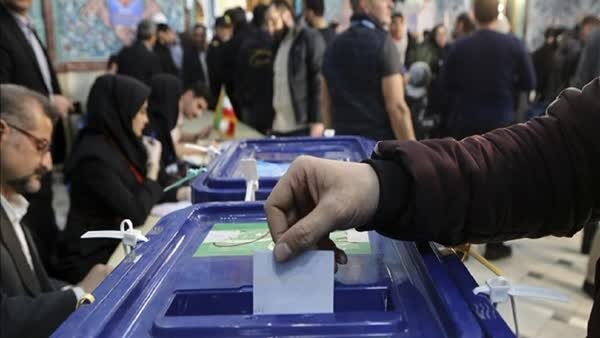11,500 polling stations ready for second round of parliamentary elections

TEHRAN- The spokesperson for Iran's election headquarters has revealed that preparations are underway for the second round of the 12th parliamentary elections, slated for May 10.
According to statements by Mohsen Eslami, a total of 11,500 polling stations will be operational during this phase of the electoral process, with eight constituencies opting for exclusively electronic voting.
Highlighting the Interior Ministry's readiness for the upcoming elections, Eslami noted that 22 constituencies have advanced to the second round.
Iranian Interior Minister Ahmad Vahidi echoed this sentiment, confirming on April 26 the completion of all necessary arrangements across the 22 constituencies participating in the second round of the upcoming election.
Of particular note is the emphasis on electronic voting, with Vahidi underscoring that eight constituencies will exclusively employ this method.
Eslami further detailed that in these constituencies, 90 candidates will contend for the remaining 45 seats in the parliamentary term.
The spokesperson outlined logistical arrangements, revealing that Tehran will host four electronic voting boxes per polling station, while other constituencies will have three.
Moreover, efforts to educate the public on the electronic voting process have been undertaken, including the distribution of educational videos and training sessions at public centers such as Friday prayers and book fairs.
Addressing voter verification protocols, Eslami stated that individuals will be required to present one of five identity documents on election day.
Additionally, candidates have been briefed on campaign regulations and transparency requirements. Campaigning is set to commence at 00:00 am on Thursday, May 2, and conclude at 8:00 am on Thursday, May 9.
Earlier on March 1, the country held parliamentary and Assembly of Experts elections. The polls opened across Iran at 8 a.m. local time (0430) on Friday for parliamentary and Assembly of Experts elections.
More than 61 million people were eligible to vote. And about 15,000 parliamentary candidates were vying for 290 seats for a four-year term.
Simultaneously, people voted for 88 members of the Assembly of Experts, a body in charge of overseeing the performance of the Leader of the Islamic Revolution.
Ayatollah Ali Khamenei, the Leader of the Islamic Revolution, cast his ballot at a polling station in Tehran in the first minutes of voting.
Ayatollah Khamenei called on the voters to turn in big numbers to please friends and disappoint enemies.
Later on March 5, Eslami provided details on the parliamentary and Assembly of Experts elections.
He announced that as results show, 45 seats in the 290-seat parliament would be decided in the run-off elections.
He said candidates who have failed to win less than 20 percent of the votes will be competing again in the spring to determine who will win the vacant seats.
In terms of voter participation, 48% were women and 52% were men, with 85% using their national ID cards to vote.
